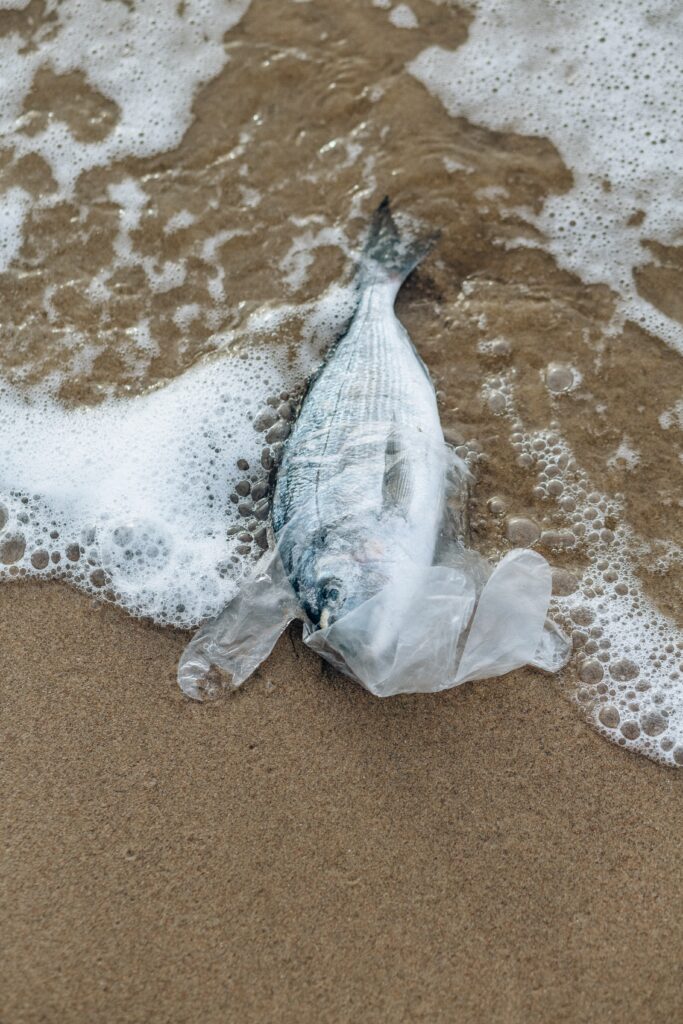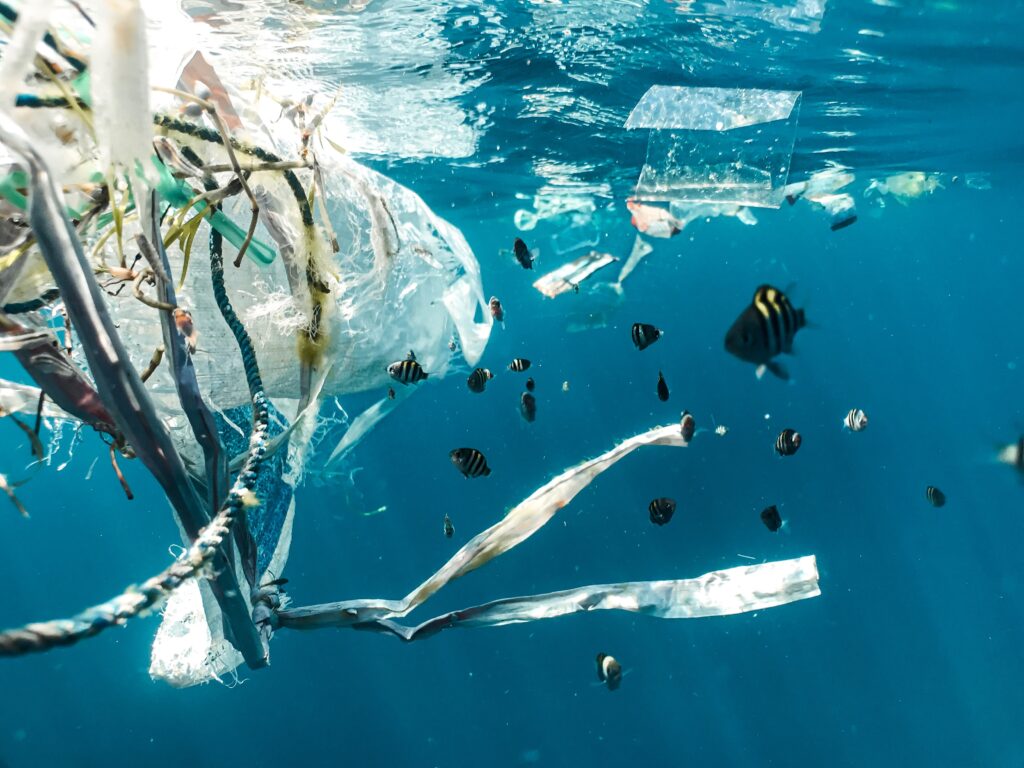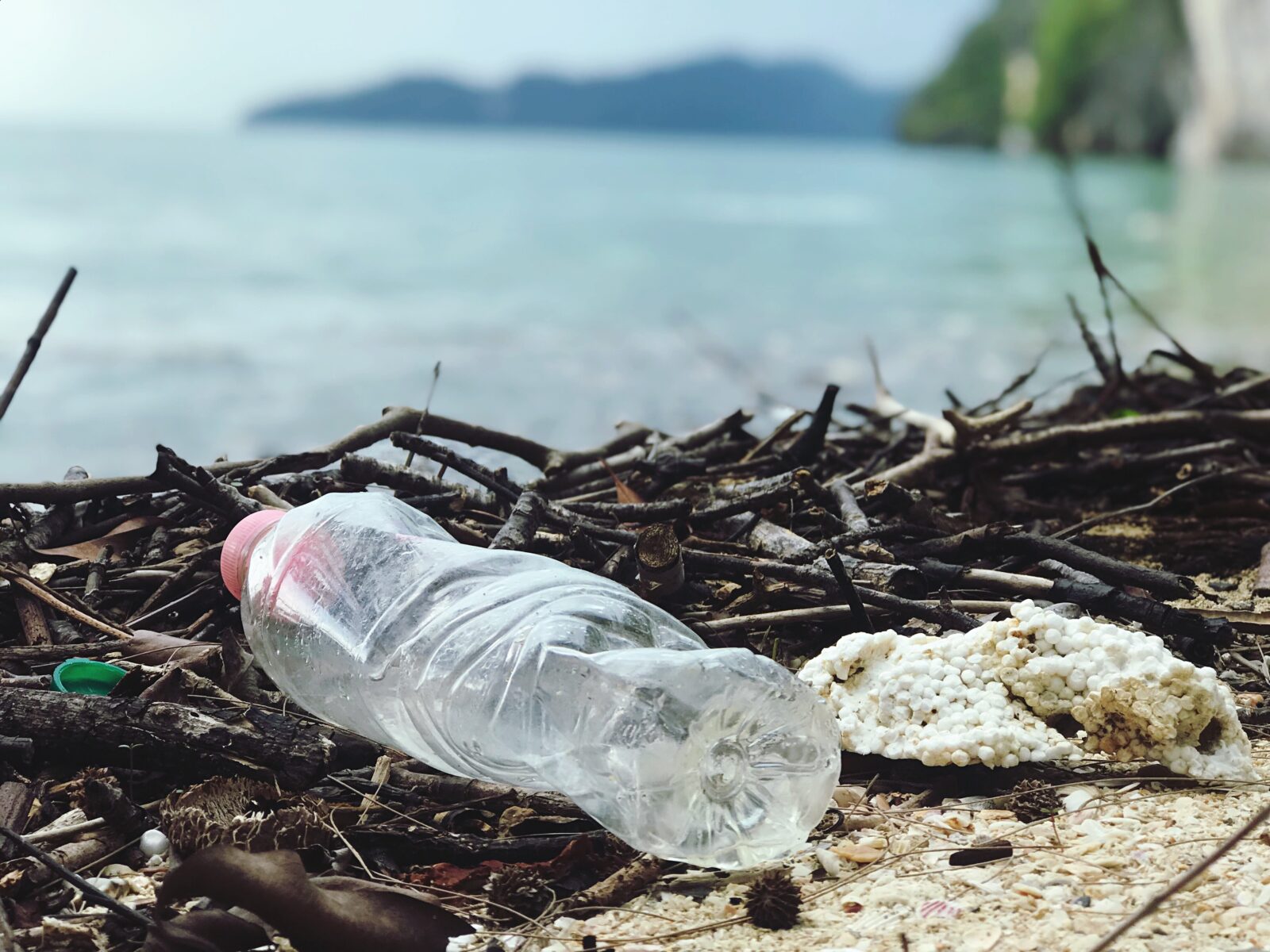The breathtaking beauty of the ocean and its magnificent waves captivate our imagination, but beneath the surface lies a pressing concern that affects both our environment and future prospects: marine pollution. Plastic waste, chemical pollutants, oil spills, and excessive fertiliser runoff are the leading culprits of marine pollution. These harmful substances desecrate the habitats, marine life, and general health of our priceless seas.It is time for us to deal with this issue head-on. This issue demands our attention as global citizens. Just about a month ago, we joyfully celebrated World Oceans Day, and it’s time for us to commit to taking action for a thriving marine ecosystem.
The Web Capitals is here to explore the captivating world of marine pollution and the blue economy—a sustainable approach that can help preserve our oceans while fostering economic growth. Let’s dive in and ride the waves of change toward a cleaner and more prosperous future.
Exploring the root causes of Marine Pollution

Plastic contamination is the leading cause of marine pollution. This occurs when humans dump plastics into the sea or other water bodies. The plastic then flows into the ocean which then decomposes very slowly, breaking into tiny plastics called microplastics. Microplastics, which in comparison to larger plastic particles, are invisible to the human eye.This makes it difficult to eradicate microplastics from the ecosystem. Marine living organisms consume these microplastics mistaking them for their food. As a result, microplastics build up in marine species’ tissues and have negative effects in all levels of the food chain, altering the delicate balance required for life to survive underneath the waves. It can have a negative impact on their long-term health in addition to causing developmental, reproductive, neurological, and immunological issues in both people and wildlife. Microplastics have just been found in human placentas.
Oil spills in marine bodies are another notable factor that leads to marine pollution, resulting in the death of nearly 2,400 aquatic animals according to some 2018 reports. When a liquid hydrocarbon derived from petroleum is accidentally released into the environment, particularly in marine ecosystems, it is commonly referred to as an “oil spill.”Giant oil companies like Shell are responsible for oil spills in the ocean. Oil spills cause significant detrimental effects on the marine ecosystem. It affects the fishing industry, tourism industry and more.Food security is put at risk by decreased yields, poor seafood quality, and affected marine ecosystems.
Ecological Consequences of Marine Pollution
Nevertheless, not just aquatic life is suffering. The health of the oceans is closely related to our existence. Marine biodiversity faces significant challenges as crucial habitats such as coral reefs, mangroves, and seagrass beds are currently under multiple grave threats. Shelter, breeding grounds, and other essential ecosystem services are provided by these ecosystems. They are the essence of aquatic life; but pollution consumes them, leaving a trail of devastation in its wake. It is as if huge towns disappeared from the face of the earth, displacing numerous species from their habitats and disturbing the complex web of life. When we zoom out, the bigger image becomes visible. Our planet’s and our own wellbeing are inherently related to the condition of our oceans.
The repercussions of marine pollution extend far beyond the boundaries of our oceans. The loss of biodiversity due to pollution disrupts delicate ecosystems and threatens the foundation of marine life. From microscopic organisms to apex predators, each species plays a crucial role in maintaining ecological balance. Disruption of the food chain and habitat destruction pose serious challenges to the resilience and sustainability of marine ecosystems.
A Call to Action

We cannot ignore this crisis any longer.The first step in driving change is realising the extent of marine pollution.It is time for each of us to take the initiative to act and change the world as accountable global citizens. We have the ability to change the course of events,Together, we must advocate for tougher waste disposal laws and support creative approaches to reduce, reuse, and recycle. The development of marine protected areas as well as sustainable fishing methods should be encouraged. We may reduce our dependence on fossil fuels and lower the risk of pollution by embracing renewable energy sources. We can also choose eco-friendly travel solutions that respect and maintain the maritime environment as responsible tourists.
Algal Blooms and the Impact of Industrial Pollutants

One particularly concerning aspect of marine pollution is the harmful overgrowth of algae in the oceans. These blooms, fuelled by excessive nutrient runoff from human activities such as agriculture and industrial wastewater discharge, such as toxic chemicals from textile industry or water bodies being enriched by excess nutrients from fertilisers, result in the rapid growth of algae in marine environments. These have detrimental effects on marine life and the overall health of the ocean. As the algae consume oxygen and release toxins, the algae leads to oxygen depletion and as a result less oxygen is available for marine living organisms’ respiration. Thus, marine life struggles to survive.
Additionally, some algal species produce toxins that are harmful to other organisms, including shellfish, fish, and marine mammals, posing a threat to both human health and the health of the marine ecosystem. Algal blooms highlight the interconnectedness of marine pollution and its impacts on the delicate balance of our oceans. Addressing nutrient pollution and implementing effective wastewater treatment are crucial steps in mitigating the occurrence and severity of algal blooms and preserving the health of our marine ecosystems.
The Blue Economy Approach: Bridging Prosperity and Sustainability
The blue economy prioritises the protection and preservation of our oceans and other water bodies. It focuses on responsible resource management, pollution prevention and waste management, substitution of non-renewable resources, sustainable coastal tourism, and fostering innovation. The blue economy serves as a guiding framework to ensure a brighter and more sustainable future for our oceans and the communities that rely on them.
The Guiding Principles of the Blue Economy

Sustainable Resource Management: The blue economy encourages responsible practices such as sustainable fishing, the establishment of marine protected areas, and the promotion of sustainable aquaculture. These measures ensure the long-term viability of marine resources, supporting both ecological and economic stability.
Pollution Prevention and Waste Management: To combat marine pollution, the blue economy advocates for robust pollution prevention measures. This involves minimising pollution at its source, implementing effective waste management systems, and promoting recycling and the adoption of circular economy principles. By reducing the release of pollutants into the ocean, we can preserve the health of our marine ecosystems.
Renewable Energy Integration: Embracing renewable energy sources is a key aspect of the blue economy. Transitioning away from fossil fuels and embracing offshore wind, tidal energy, and wave power can mitigate climate change, reduce the risk of oil spills, and foster a clean energy future.
Sustainable Coastal Tourism: The blue economy recognises the importance of coastal tourism while advocating for sustainable practices. Responsible tourism approaches include minimising pollution caused by tourist activities, protecting sensitive coastal ecosystems, and raising awareness among visitors about marine conservation.
Research and Innovation: Advancements in marine research and technology are vital for effectively tackling marine pollution. The blue economy promotes research to understand the impacts of pollution, as well as the development of innovative solutions. From improved waste treatment technologies to alternative materials and sustainable practices, innovation plays a pivotal role in shaping a cleaner and more prosperous future.
Artificial Intelligence to combat Marine Pollution
In recent times, the utilisation of Artificial Intelligence (AI) for marine data analysis has become increasingly prevalent. This emerging field offers significant potential for comprehending and tackling the intricate challenges faced by our oceans and seas. Machine learning algorithms have proven successful in forecasting the distribution and quantities of marine litter.
Collaborations between data scientists and marine biologists are now underway to develop innovative data science techniques for analysing substantial amounts of data encompassing water quality, temperature, salinity, dissolved oxygen levels, marine biodiversity, as well as the movements and behaviour of marine species. By employing machine learning algorithms to process and interpret this data, data science provides marine scientists with a more profound understanding of our oceans’ condition, the impact of human activities, and the overall health of marine ecosystems. In the past, marine biologists traditionally collected samples in the field for wet lab experiments, followed by extensive research in the laboratory that often spanned several years. This process was laborious and time-consuming. Thanks to data science, the analysis, processing, and interpretation of data have become remarkably effortless.
By harnessing the power of AI, we can gain profound insights into the intricacies of our oceans, thereby paving the way for more informed decision-making and effective conservation strategies.
Empowering Change: Unleashing the Potential of Responsible Citizenship for a Sustainable Blue Economy
The allure of our marine environments captivates us, offering respite and rejuvenation. Yet, amidst this enchanting allure, we have faltered in preserving their pristine beauty. By recognising the severity of marine pollution and embracing the principles of the blue economy, we can cultivate a harmonious balance between economic progress and environmental preservation. Putting an end to marine pollution could be a daunting challenge for us but as responsible global citizens, we must embark on the journey to take action to preserve our marine ecosystem and forge a sustainable world where both nature and prosperity flourish. Together, we can forge an enduring legacy for future generations.


























Leave a Reply